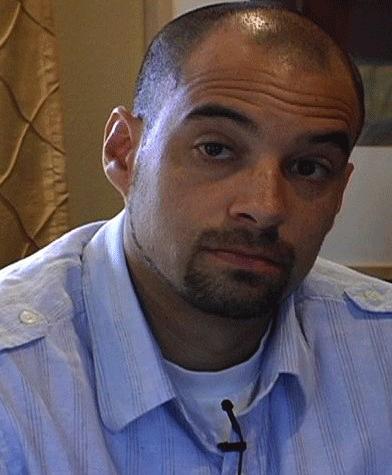Jeff Duncan-Andrade challenged students to reconsider their definition of success in a speech at De Anza College’s Visual Performing Arts Center Feb. 9.
“In this country we have differing definitions of success depending on who you are and where you come from,” Duncan-Andrade said, referencing his 18 years of experience teaching to students in East Oakland schools.
Duncan- Andrade, who holds a doctorate in social and cultural studies in education, said that during his college career, he had been frustrated by many of his professors who thought the reason students in poor communities don’t succeed in school as well as students from privileged communities is because students in poor communities are more confrontational, and generally cause more trouble.
He quoted a poem found within the song “Mama’s Just A Little Girl” by Tupac Shakur, which uses the image of roses with damaged petals, growing out of concrete, to illustrate the problem with questioning why students in poor communities do worse in school, instead of celebrating that the students are able to make it through school given the environment they are forced to learn in.
“It is absurd to look at a rose that is growing in concrete and question its damaged petals,” Duncan-Andrade said. “When you see someone else, you choose whether you see them as half-full or half-empty, cause they’re both.” Tupac says instead you celebrate its tenacity and its will to reach the sun.
Duncan-Andrade said that the choice of how one views a rose from the concrete determines that rose’s future.
“You choose whether you see them for their damaged petals or for their tenacity and their will to reach the sun,” he said. “When you choose to see people for their tenacity and their will to reach the sun, their cups fill up, and when you choose to see them as damaged their cups never fill up.”
And the problem, according to Duncan-Andrade, is that when a rose does break through the concrete in these communities it is immediately plucked and replanted in a better community, a rose garden.
“That’s what happens time and time again in our communities.” Duncan-Andrade said. “Our best and our brightest leave, and the concrete stays the same.”
Not only do our best and our brightest leave, but they join the other team that already has all ‘the best and the brightest.’ So the team that’s already strong gets stronger, and the team that’s already struggling struggles all the more.”
Duncan-Andrade said his school made him feel that to be successful he had to make a choice between going to college or be with his family in the dilapidated community he grew up in, but students from rich communities never have to make such a choice. He proposed an alternate definition of success in which one does not try to “get out,” but returns to one’s community and helps strengthen it so that one can feel proud.
“And when that becomes the definition of success for all of us, that we come up through the cracks in the concrete and we get to the rose garden and we fill our pockets with the soil, and the light, and the water, and the knowledge that is there, and you return back to the crack, what will be beneath that concrete? More roses,” Duncan-Andrade said. “And if you can drill yourself down in that crack and hold that crack open and share the light, share the knowledge, share the soil, share the water then those roses will grow up with fewer damaged petals.”
Duncan-Andrade ended his speech with a message that everyone, regardless of their background, has a responsibility to make communities better.
“Wherever you came from there are roses growing underneath that concrete that need you back,” he said. “And the only way that we’re gonna move from single roses growing through the concrete to the rose garden is when our roses start coming back and making it so.”
Duncan-Andrade teaches at San Francisco State University and at Fremont High School in East Oakland. More information on Duncan-Andrade’s “Roses In Concrete” philosophy, and the achievements of the Step To College program he teaches for can be found at rosesinconcrete.org.









